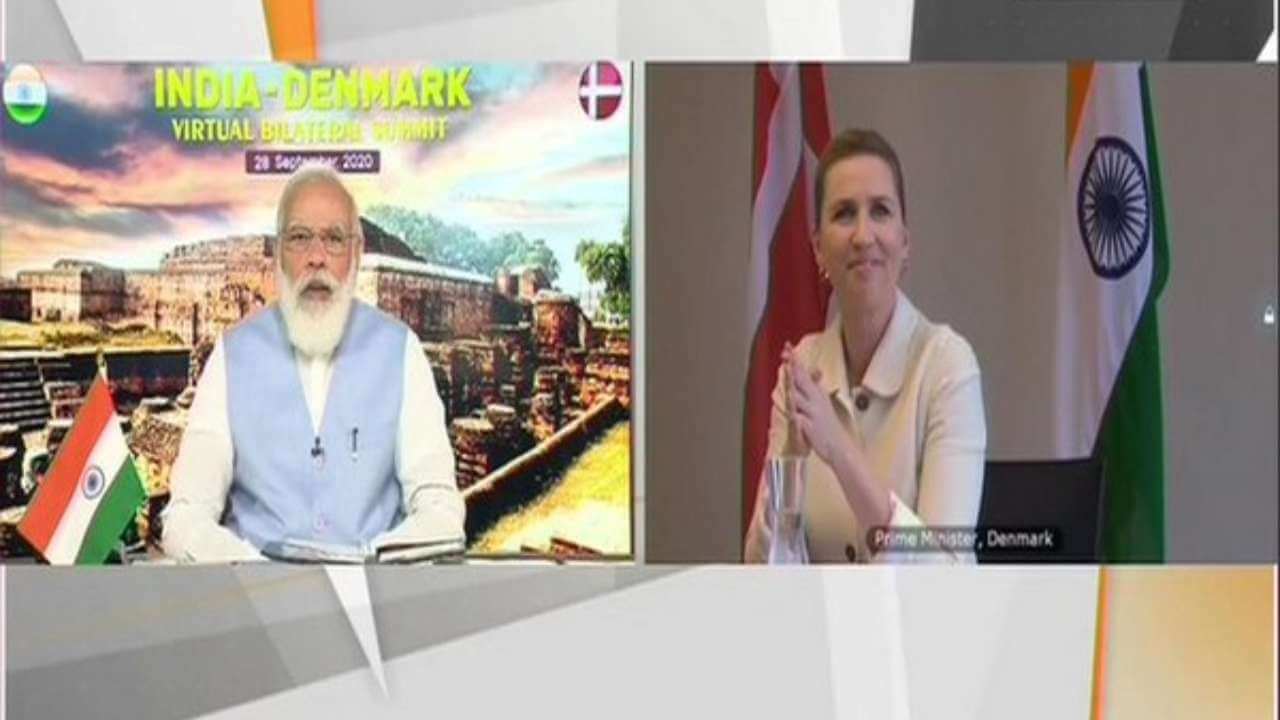On Monday, Indian Prime Minister Narendra Modi and his Danish counterpart Mette Frederiksen co-chaired a virtual meeting to discuss the two countries’ political and economic collaboration, along with their dedication to the fight against climate change. During the hour-long summit, the two sides agreed to upgrade the countries’ relationship to a “Green Strategic Partnership”.
This will be in addition to the existing “Joint Commission Cooperation” agreement that signed between the two countries in 2009, under which India and Denmark agreed to collaborate in several fields, including science and technology, education and culture, and economic and commercial fields. Consequently, several Joint Working Groups for issues such as urban development, shipping, labour mobility, and digitization were also established.
According to the joint statement released following the talks, the Green Strategic Partnership is a “mutually beneficial arrangement” that will expand political and economic cooperation between the two countries, while continuing to focus on “an ambitious implementation of the Paris Agreement and the UN Sustainable Development Goals.” Accordingly, both the leaders agreed to be frontrunners in the fight against climate change and work towards a sustainable development model.
In his opening statement, Indian PM Narendra Modi spoke of the impact of the Covid-19 pandemic and said that it highlighted the risks of global supply chains being heavily dependent on any single source, seemingly referring to China. “We are working together with Japan and Australia for supply-chain diversification and resilience. Other like-minded countries can also join this effort. In this context, I believe that our Virtual Summit will not only prove useful for India-Denmark relations but will also help in building a common approach towards global challenges,” the PM added.
The controversial topic of Kim Davy also came up during the virtual conference. The issue of extradition of Kim Davy, who masterminded the arms drop in West Bengal in 1995, led to a major setback in India’s relations with Denmark in 2012. This was a direct consequence of a lower court in Denmark refusing to extradite Davy, and the Danish government’s refusal to further appeal the verdict. After six years of diplomatic tensions, in 2018, both countries agreed to isolate the Davy issue and refrain from letting it impact the overall Indo-Danish relations. Neeta Bhushan, the Joint Secretary (Central Europe) in the Ministry of External Affairs, on being asked about the controversy, said, “It was mentioned. Concerned officials on both sides will be in touch and work towards an early resolution of the issue.”
As a result of the summit, Denmark, which is the most energy-efficient member of the European Union (EU), and the Organisation for Economic Co-operation and Development (OECD) will assist India in fulfilling its obligations under various international environmental treaties. Ms. Bhushan said, “Danish companies have niche technology in these areas and they have offered to help us in meeting our targets of reducing air pollution. Danish companies are already in talks with Indian companies on how to take things forward.” The two countries also agreed to convene regularly to discuss environmental issues. Consequently, the Danish Environmental Protection Agency and the Jal Shakti Ministry will be working closely with the Danish Environment Ministry to develop a joint action plan for 2021-2023.
Finally, the leaders discussed the importance of multilateralism and organizations such as the World Trade Organization (WTO). The joint statement said, “Both sides supported the need for cooperation on promotion of an open, inclusive and rule-based multilateral trading system under the WTO at its core to promote global growth and sustainable development.” They also agreed on the need to initiate reforms to the existing system to strengthen the international body.
Modi and Danish Counterpart Frederiksen Discuss “Green Strategic Partnership”
Denmark, which is the most energy-efficient member of the European Union and the OECD, will assist India in fulfilling its obligations under various international environmental treaties.
September 29, 2020

SOURCE: ANI
